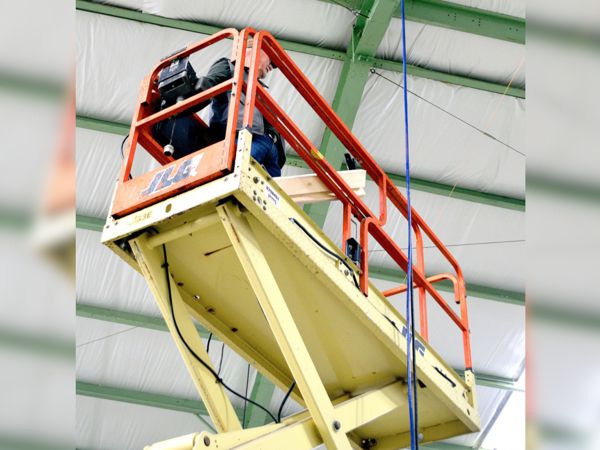Scissor lifts are essential tools used in a wide range of industries, such as construction, retail, entertainment, and manufacturing. These lifts provide a stable platform for workers to perform tasks at elevated heights. Unlike aerial work platforms, scissor lifts use a unique mechanism involving crossed beams that resemble the shape of scissors, allowing the platform to move vertically.
Because of their structural design, many scissor lifts fall under OSHA's scaffolding standards. This ensures that proper safety measures are followed during operation. Operators must be trained and aware of the potential risks involved when using these machines.
The most common hazards associated with scissor lifts include falls from the platform and tip-overs. While rare, the collapse of cross beams can occur if the machine is not maintained properly or if the operator does not follow manufacturer guidelines. Regular inspections and maintenance are crucial to prevent such incidents.
Today, some of the leading manufacturers of scissor lifts are JLG and Terex’s Genie. These brands offer a variety of models designed for different applications and environments.
A scissor lift is essentially a mobile scaffold that allows workers to reach higher elevations. Most models can operate up to 25–50 feet, with platform dimensions typically ranging from 24–36 inches in depth and 48–72 inches in width. The number of people a lift can carry depends on its weight capacity and model specifications. Always check the lift's manual before use to ensure safe operation.
Operators can control the lift either from the base or from the platform itself. Some models allow movement while the platform is extended, but this feature should be used with caution. Many manufacturers recommend avoiding movement while the lift is raised to reduce the risk of accidents.
Source: OSHA
Notes: Scissor lifts get their name from the "scissors" shaped cross beams that raise and lower the platform.
Before operating a scissor lift, it’s important to assess the worksite and identify any potential hazards. Operators must implement effective controls for fall protection, stabilization, and positioning. Only trained personnel should be allowed to use these lifts to minimize risks.
All scissor lifts must be equipped with guardrails to prevent falls. Most models include top and mid rails around the platform, which can be used to attach harnesses and lanyards. Special attention should be given to models with extendable platforms, as they may have additional rail sections that require careful handling.
Notes: Falling from a scissor lift can result in serious injury. Always stay within the platform and consider using a body harness for extra safety.
Ensuring the stability of the scissor lift is critical to prevent tipping or collapse. Operators should always verify that the ground is level and firm before use. Some models are designed for rough terrain, but most require flat surfaces. Moving the lift while it’s raised can increase the risk of instability.
Scissor lifts can tip over if they are used on uneven ground, struck by a moving object, or hit an obstacle while extended. Operators must remain vigilant at all times.
Notes: Be cautious when maneuvering the lift, especially when it is extended. Avoid collisions with objects or vehicles that could cause the lift to tip.
Proper positioning of the scissor lift is vital to avoid hazards like crushing and electrocution. If the lift moves and collides with a person or object, it can cause serious injuries. Similarly, extending the lift near power lines poses a severe risk of electrocution.
Electrical arcs can jump from power lines to the lift or worker, even without direct contact. Operators should be aware of these arc flash risks and maintain a safe distance from overhead electrical systems.
Notes: Always be cautious when raising or lowering the platform and when moving the lift on the ground.
#material handling
#construction
#toolbox talks
#scissor lifts
Turbo Kit For K03,Audi Repair Kit,K03 Turbo Kit,Repair Kit Of Audi Fengcheng Fire Turbocharger Manufacturing Co; Ltd. , https://www.fireturbocharger.com
Scissor Lift Design
General Safety Measures
Fall Protection
Stabilization
Positioning
Group Discussion Topics
Find Similar Articles By Topic